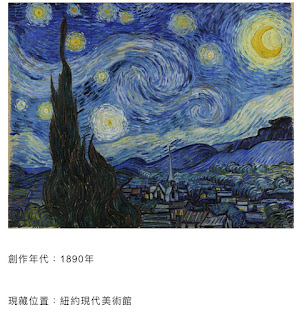南禪朋友早安!
最近認識的大德有些焦慮自己的前途,
提供一個基本功。
當你的腦海浮現看到別人過好日子,你就認為他們都是搶
來的或是他們都是很容易就做到! 那就應該告訴自己,他們一
定付出很多, 我自己做自己的。
魔鬼無非就是在你腦袋給你負面的顛倒妄想, 大家都生活的
好, 全世界只有你自己不好, 你盡量去嫉妒、盡量去掠奪⋯⋯
當你的腦袋僅有這些負面的想法的時候, 其實你的福報已經在
報銷了, 魔鬼給你嗎啡吃,讓你完全顛倒妄想, 如果我們可以
克制這樣的想法,只看好自己, 讓自己的腦袋能從黒暗中透出
光明,
可以克制這些顛倒妄想, 除了供養功德外更為自己造福, 不必
怕自己不能往前走!
我個人就這樣修的, 個人早年很用功這樣做, 墊下一個雄厚的
基礎,幫助我有力量往前走!
換句話說:佛經一直講「貪瞋癡薄,」反應的是光明的力量,
自己的前途也會因光明的力量而開拓一條路的
只問自己拿什麼能力往上爬。
佛陀自己也常說:天魔波旬常在搜尋祂的弟子腦袋,(意識)
找佛陀弟子腦袋幹什麼?
裝進各式各樣的顛倒妄想啊! 看似靜態的修行, 但只要大腦一
直是顛倒妄想,就一直在消耗自己福報,
修行只要能反制不論是自己的,或是別人給的顛倒妄想,
基礎從此墊下。
半寄
(上圖照片,不聽、不看、不說顛倒妄想,泰國佛寺)
(自己盯著自己,只要了解自己的心意識,不過只是一隻猴子
而已,哪有心思去看別人在幹什麼! 拼命往前跑都來不及)
The Monkey Mind
Good morning, friends of Nan Zen!
Amongst the people I’ve recently become
acquainted with, some are
worried about the future, and I’d like to speak about
that.
When we see others who are doing well, we
tend to assume that
everything has always been easy for them, or that their
success has
been acquired through nefarious means! It would be better to tell
yourself that whatever they are now enjoying is surely the result of
meritorious deeds done in the past, and that I can do the same.
The main way in which an evil spirit brings
you to harm is to sow
negative and deluded thoughts in your mind, the sort of
thoughts
that make you believe that you are the only one in the whole world
who
has problems, so that you begin to envy others, and may even
start thinking
that you might be justified in getting ahead by
engaging in illicit activities.
When you fall prey to these sorts of
negative thought patterns you
actually attenuate whatever blessings you might
have otherwise had
coming your way. This is the morphine the devil gets you
hooked on
so that your thinking gets all twisted. What we need to do is to put
an end to this way of thinking; when you gain a clear understanding
of
yourself, it’s as if a bright light comes shooting out of the
darkness; by
practicing the virtue of generosity you generate
blessings and good fortune for
yourself, enabling you to
courageously go forward!
For a long time now I have been diligently
practicing in this way; it’s
a way of laying down a solid foundation, and it
gives you the
strength needed to keep moving ahead!
This is why the Buddhist scriptures
repeatedly stress the importance
of attenuating greed, hatred, and delusion;
doing so generates a
bright kind of energy which helps to illuminate the way
ahead.
It’s up to us to generate this energy and
to use it to keep moving in
the right direction.
The Buddha repeatedly said that Mara is
always observing the hearts
of those on the path of Buddhist Practice.
What for?
He’s looking for his chance to install all
sorts of devious and twisted
ideas in their hearts! Someone may appear to be
enrapt in
meditation, but as soon as a deluded thought pattern arises, one’s
blessings are consumed.
So an essential part of practice is being
able to overcome and
eradicate these deluded thought patters, be they of one’s
own
making or learned from someone else.
This is one of the foundations of Buddhist
Practice.
Master Ban Ji
Translated by Ken Kraynak
(photo: Three monkeys showing the idea of
“Hear no delusion, see
no delusion, speak no delusion” at a monastery in
Thailand)
(By turning inwards, you come to realize
that your mind is like a
restless monkey; you won’t learn this by observing
others! The mind
is so fast that you’ll never catch up with it.)





